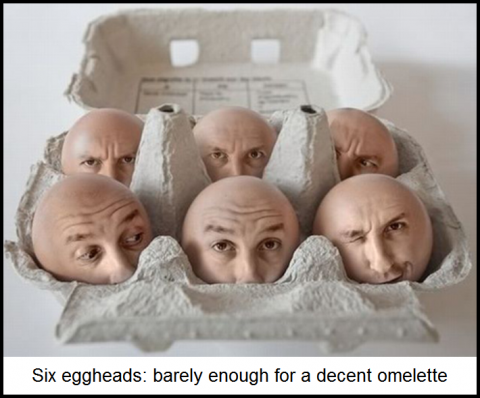The term “Great Recession” first came into popular usage a couple of years ago, a tacit acknowledgment that the economic quagmire we entered in late 2007 was qualitatively worse than any mere recession this country had previously experienced. As indeed it was – or if you prefer, continues to be. Home prices in the U.S. have plummeted more than 30 percent, while unemployment has risen to its highest levels since the 1930s. These symptoms have not only persisted, they are apparently getting worse. Earlier this week it was reported that the three-year decline in real estate valuations across the U.S. continued into January, further ravaging such already down-and-out cities as Las Vegas, Cleveland and Detroit. In at least 11 other major cities, prices were reported to have fallen to the pre-boom levels of 2003 or earlier. But prices also fell to ten-year lows in places where real estate never got quite as pumped, such as Denver, Atlanta, Minneapolis and Chicago. Imagine having zero equity in a home on which you’ve been making mortgage payments since 2000. According to the latest statistics, that is exactly the situation facing many homeowners in areas of the country where property valuations until recently had been holding up relatively well.
You could hardly blame 30 million property owners who are underwater for thinking the recession never ended. For in plain fact it never did, and only someone with a PhD in economics could be so blind to reality as to maintain otherwise. Two economist we would cite in particular are Princeton University’s Alan Blinder and Mark Zandi, authors of a paper entitled “How the Great Recession Was Brought to an End”. That’s an oxymoron, as far as we’re concerned, since, these days, when the term “Great Recession” is used, it is meant to connote a recession that is still very much with us. If it is a talking head on CNBC who is using the term, you can bet that he or she is being just a little bit coy. On the one hand, the guest is trying to avoid falling out of step with official, party-line pronouncements that had the recession ending as early as the second quarter of 2009. On the other hand, the guest doesn’t want to sound like a complete idiot to a hundred million Americans for whom economic straits have only tightened since the recession allegedly ended. For their part, network anchors who want to skirt the issue accurately refer to these hard times as, well, hard times. How else to present an endless stream of grim economic news that, on its face, and notwithstanding the ostensibly upbeat pronouncements of eggheads beholden to the status quo, tell us the U.S. economy remains in a deep wallow, alleviated only by the appalling spectacle of a stock market wafting higher and higher on the toxic vapors of Quantitative Easing.
Parroting Reid-Pelosi
In fairness to Blinder and Zandi, they made clear that maintaining the fiction of economic recovery required The Government to, among other things, extend jobless benefits more or less indefinitely, and at a cost so far of $300 billion, to a growing cadre of the unemployed. Where Blinder and Zandi run off the rails is in parroting the Pelosi-Reid line that all of this money – every penny of it, need we remind you, borrowed from the future earnings of productive workers – provides a real boost to the economy. The two eggheads put an actual number on this benefit: $1.61 returned to the economy for every $1.00 spent on benefits. Who but an economist or a politician would have us believe something so brazenly stupid and counterintuitive? To remained disinterestedly above such claptrap, we’d suggest keeping in mind, every time you hear the term “Great Recession,” that it is far from over.
(If you’d like to have Rick’s Picks commentary delivered free each day to your e-mail box, click here.)


Having a college degree doesn’t mean you have a job. My upper middle class friends (lawyer, accountant, computer developers) are going broke. Several lower class friends are on the verge of homelessness (one just saved by bankruptcy; the other may be living in a broken van). My business is very slow and I’m saved only by money from a natural gas drilling lease (which I consider to be sheer luck). Otherwise my home thermostat would be set at 55 degrees–like everyone else I know.
There is no recovery; it’s all smoke and mirrors. At some point, when the states cut back drastically, ending whatever safety net the lower classes have, you will see unrest. Another poster pointed out that Americans are better armed. Here in Pennsylvania, a hunter doesn’t have one gun, he has a dozen.